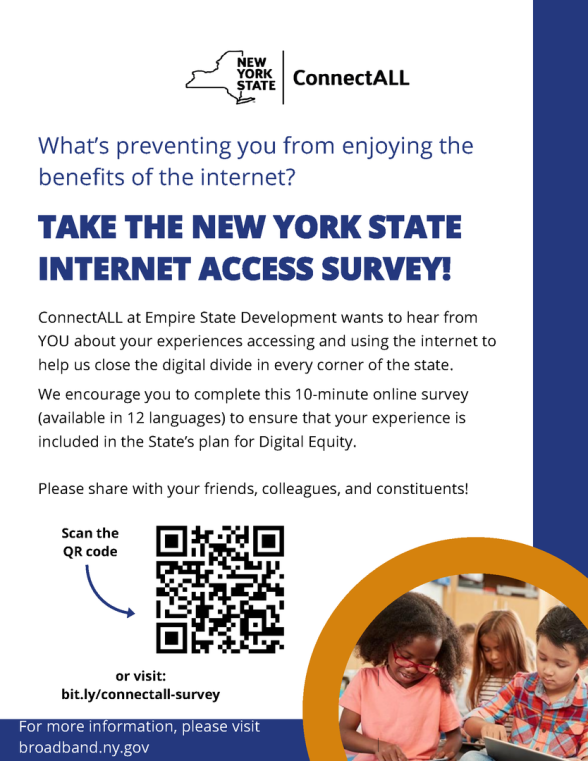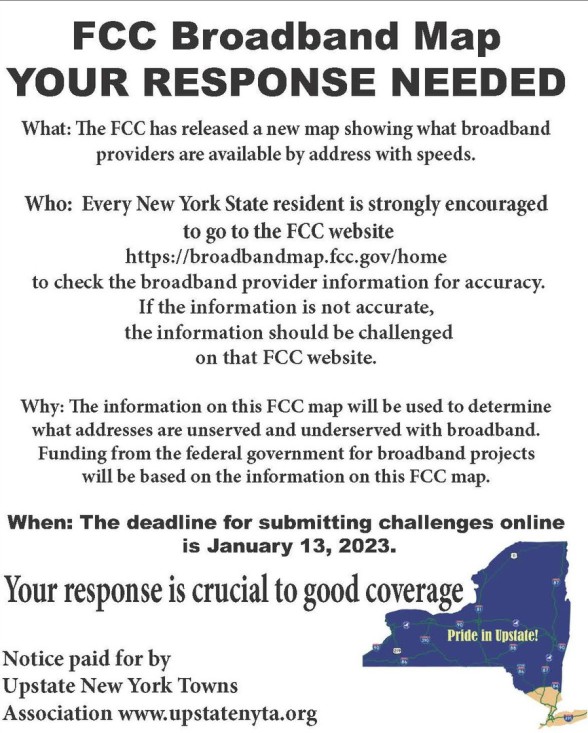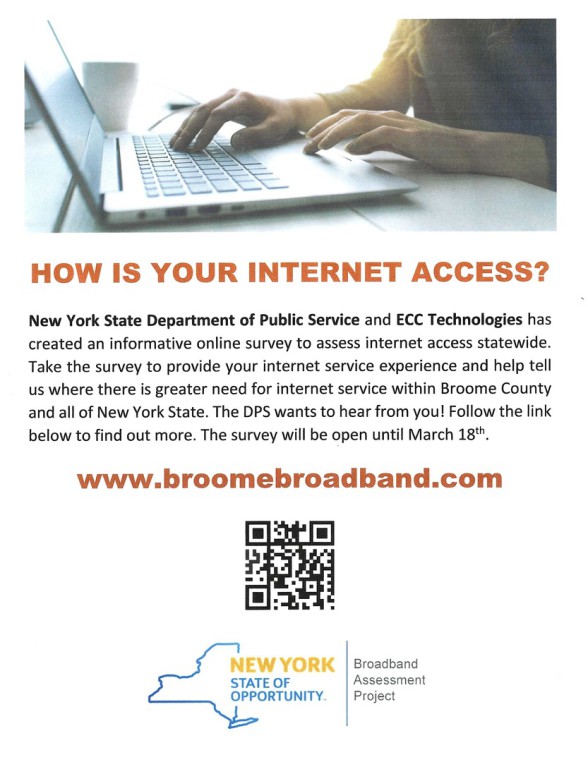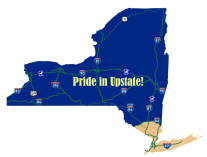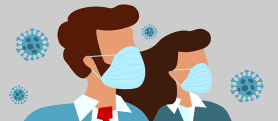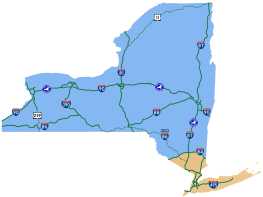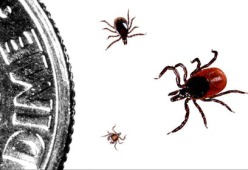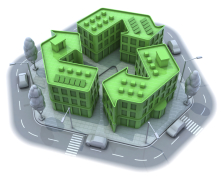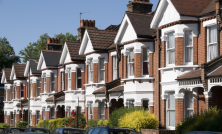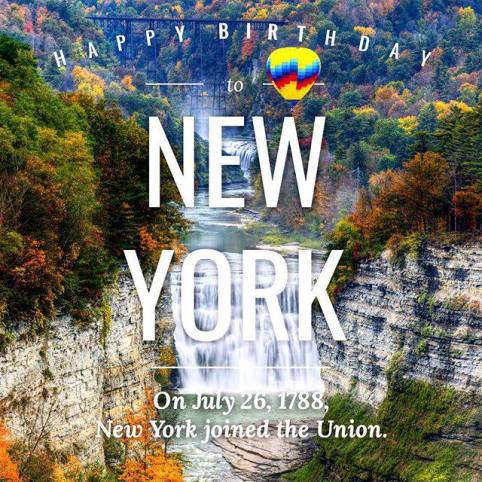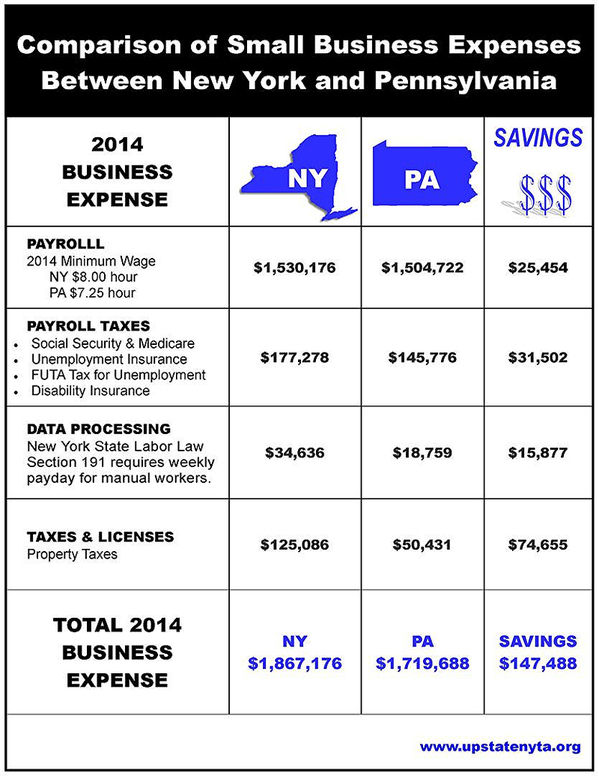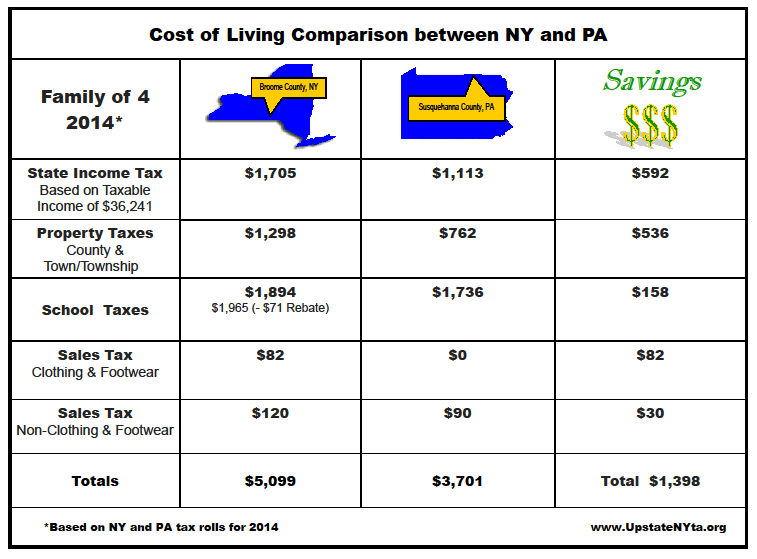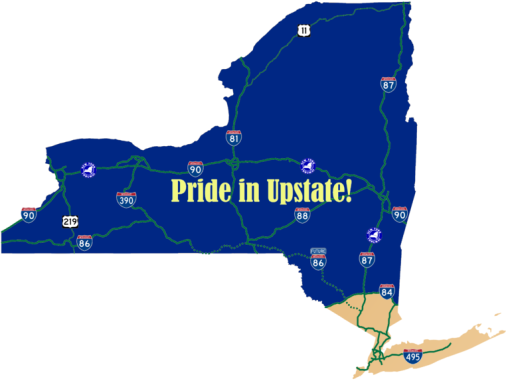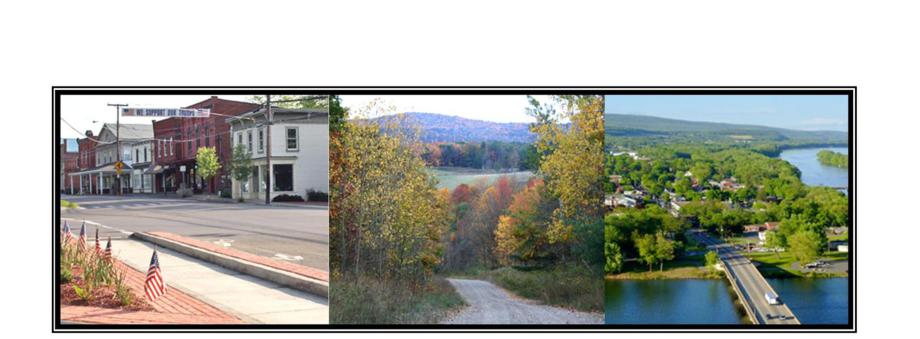
Serving the Unique Needs and Interests
of Upstate NY Towns
Here's a helpful tutorial if you need help challenging the information on your address.
Editor's note:
Carolyn Price has spent years advising New York State citizens and leaders of the vital importance of Improved Internet Connectivity in Upstate New York. This need has been proven time and time and again throughout this past year.
Download the full text of Carolyn's 03/21/2021 Guest Columnist article below.
Carolyn Price- Guest Columnist for the Press & Sun Bulletin and Star Gazette.
Carolyn's article.pdf
Adobe Acrobat document [1.1 MB]
On February 23, 2021, UNYTA President, Carolyn Price presented testimony at the NYS Joint Legislative Budget meeting via Zoom.
Here is her Testimony in full
Executive 2021-22 State Budget
Joint Legislative Budget Testimony
Upstate New York Towns Association
February 23, 2021
Honorable Carolyn Price, President
Thank you to Senate Finance Chair Liz Krueger and Assembly Ways and Means Chair Helene Weinstein and distinguished members of the panel for holding today’s hearing.
My testimony today will focus on two taxes: Right-of-Way Tax (Fiber-Optic Tax) and Sales Tax
Right-of-Way Tax (Fiber-Optic Tax)
2019 subdivision 24-e added to section 10 of the highway law and section 7 of the transportation corporation law provided for the right-of-way tax (fiber-optic tax) that allows the New York State Department of Transportation to require installers to enter annual fee-bearing permits to charge corporations per foot, per cable, for fiber optic lines they own.
This fiber-optic tax discourages deployment of modern telecommunications infrastructure. It is a barrier to broadband expansion.
Governor Cuomo’s goal is “broadband for all.” The Upstate New York Towns Association has promoted increased access to technology in Upstate New York for several years. The Governor and our association want to close the digital divide that still exists in parts of Upstate New York.
Covid-19 showed us how important broadband is for students doing their school work at home, for people doing their jobs from home, for people accessing health care from home. Elected officials in our association heard from families where their children could not access the internet to do their school work, heard from people who could not do their jobs remotely at home because of no internet or intermittent internet access, heard from people who needed health care through tele-health but did not have internet access to access health care this way.
Yes, we need broadband expansion in Upstate New York. Thank you to the Senate and Assembly for recognizing that this right-of-way tax (fiber-optic tax) needs to be repealed. We encourage your continued support in having Senate bill S2659 and Assembly bill A4373 passed and signed into law.
Sales Tax
As an association, we are concerned about the State taking local revenues, sales tax, to pay for state programs. The State is transferring a burden from the state taxpayer to the local taxpayer.
AIM (Aid and Incentives for Municipalities)
The Office of the State Comptroller is required by Chapter 59 of the Laws of 2019 to withhold certain county sales tax revenues and make payments to the impacted towns and villages. The State Division of the Budget refers to these as “AIM-Related” payments.
In other words, the State withholds sales tax revenues from the counties so the State can make the “AIM-Related” payments with this withheld sales tax revenue. This means the counties receive less sales tax revenue and municipalities who receive shared sales tax revenue from the counties receive less sales tax revenue.
Let’s look at an actual example. The 2020 AIM-Related withholding from Broome County was $1,380,799. Broome County shares sales tax with the municipalities in the county 50-50. $690,400 would have been divided among the municipalities. For example, the Town of Windsor would have received $18,434.
Local Distressed Hospital Funding Pool
Part ZZ of Chapter 56 of the Laws of 2020 provides for the collection of $50 million in sales tax revenue from counties outside of New York City to fund local distressed hospitals.
Again, let’s look at an actual example. The 2020 withholding from Broome County for this Local Distressed Hospital Funding Pool was $831,003. $415,502 would have been divided among the municipalities. The Town of Windsor would have received $11,094.
Total loss of sales tax revenue for Broome County was $1,105,900. Total loss of sales tax revenue for the Town of Windsor was $29,528.
This taking of sales tax which is a local revenue to fund state programs must stop. Local sales tax should be held in high regard by the State and left untouched. Counties and local municipalities cannot withhold from state revenues.
When the State needs additional revenue, has the State looked for other revenue sources? Has the State looked at reducing expenditures so not as much revenue is needed? When we as towns are faced with needing more revenue, these are questions we ask.
Thank you very much for giving me this opportunity to speak on behalf of the Upstate New York Towns Association.
Upstate New York Towns Association's meetings and events have been canceled due to the Coronavirus. Staying safe...
These are challenging times for our world.
As leaders of NY State towns, we have the unique and challenging task of keeping our residents safe and calm. Please encourage everyone to follow the guidelines from the Centers for Disease Control and Prevention.
Joint Senate and Assembly Public Hearing
Subject: Rural Broadband
Purpose: To identify current broadband needs in rural New York State
Tuesday, September 17, 2019
11:00 am
Hearing Room A
Legislative Office Building, 2nd Floor
Albany, NY 12247
My name is Carolyn Price, and I am speaking today as President of the Upstate New York Towns Association, www.upstatenyta.org and Supervisor of the Town of Windsor, Broome County. I am also speaking for people who make huge sacrifices because they have no internet access such as driving a 40 mile roundtrip to do banking.
My remarks will focus on recommendations to identify and reach the unserved and underserved with broadband in rural areas of New York State.
New York State broadband is delivered via wireline technologies and wireless technologies. However, we don’t know how much broadband coverage we truly have, particularly in rural areas. To continue to move forward and have access for the unserved and underserved, we need to know what we have, where it is and options to reach the unserved and underserved areas.
Why don’t we know what we have and where it is? The maps are faulty because the FCC allows internet providers to claim on Form 477 an area as served if only one home in a census block has internet service.
Recommendation #1: Work with the FCC to get a better reporting requirement so there are more accurate maps.
Fiber is the optimal broadband technology. There is fiber in parts of rural communities. Do we really know where fiber is and where it doesn’t exist? Through utility pole data surveys we could get answers. These surveys entail getting the GPS location of each pole, identifying the pole numbers, finding out who owns the poles, and determining what is actually on the poles.
These utility pole data surveys help to develop efficient fiber route design by minimizing the number of poles that need to be attached to and provide the details of the amount of miles of fiber that need to be built to complete a network.
Recommendation #2: Fund Utility Pole Data Surveys
Municipalities have not been involved in the application process for funding through New York State’s Broadband Program Office. We find out what projects have been awarded funding when those announcements are made publicly. Sometimes the funded locations make sense and other times high need areas are overlooked.
Recommendation #3: Require companies applying for State funding to describe how municipalities were involved in the application process and require sign off in the application by the chief municipal officer.
The New York State Broadband Program Office is located in New York City. The Upstate New York Towns Association had a speaker from that office, and it was a most informative meeting. The speaker was from the New York City area and was surprised to learn how bad the lack of broadband and the underserved is in rural Upstate towns. Remember the Upstate rural resident driving a 40 mile roundtrip to do banking. Would that happen in New York City?
Recommendation #4: Move the Broadband Program Office from New York City or establish a satellite office in an Upstate town or village so the people doing this work are close to the communities with the largest broadband needs.
There is emerging, promising technology such as Google’s Project Loon. Antennas are placed inside of giant balloons which are solar powered. The balloons are in the stratosphere and communicate with antennas on the ground which connect to local internet providers.
Recommendation #5: Be involved with emerging technology. Have staff from the New York State Broadband Program Office and New York State officials studied Google’s Project Loon and considered trying an experiment with this technology in a high need rural area?
Thank you for giving me the opportunity to speak about this very important topic. Expanding access to high speed internet remains a task as large as rural electrification 100 years ago. We must ensure that every home, business, school, municipality, not for profit in Upstate New York is connected with reliability at an acceptable speed.
Thank you to all who attended our recent UNYTA Program!
Thank you to all who attended the June program!
Keys to Animal Adventure Park's Growth and Success
Thank you Jordan Patch for an inspiring presentation.
You have shown that an entrepreneur can be very successful in a rural area.
The Upstate New York Towns Association, Inc. was formed on July 18, 2013 because there are needs and interests of towns in upstate New York that are different than the needs and interests of towns in downstate New York.
The Seasons in Upstate NY are Spectacular!
